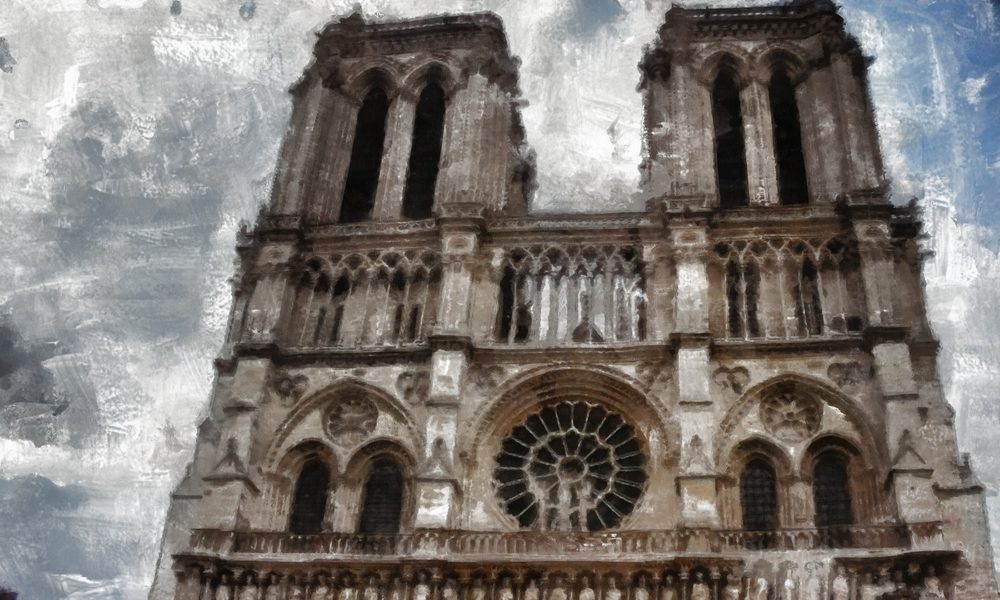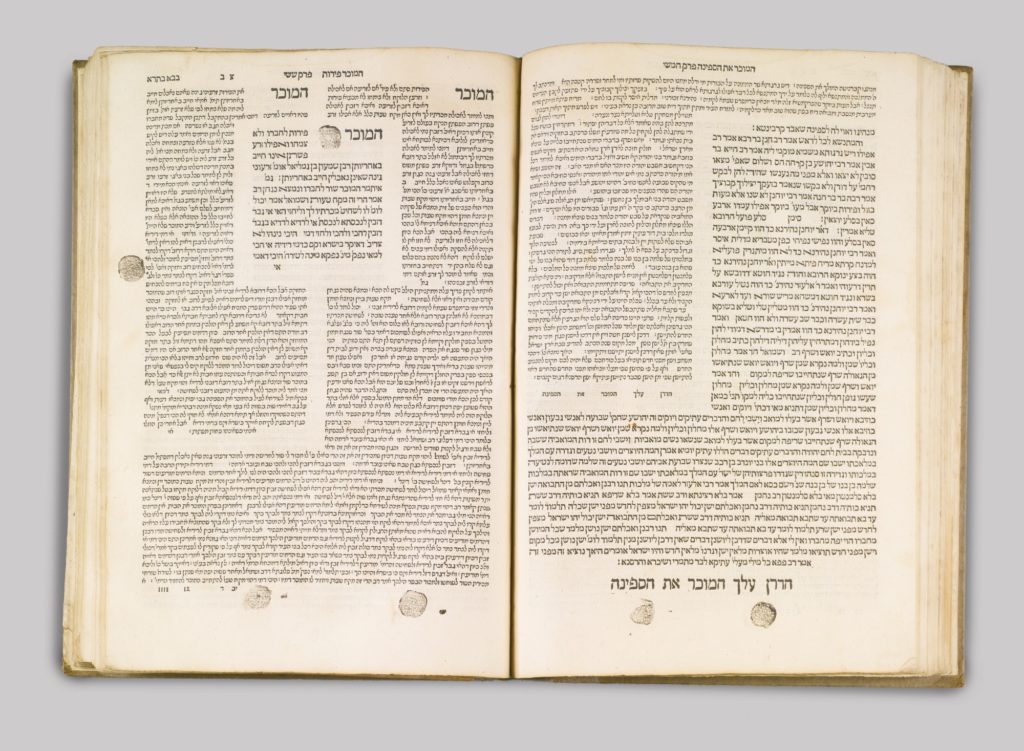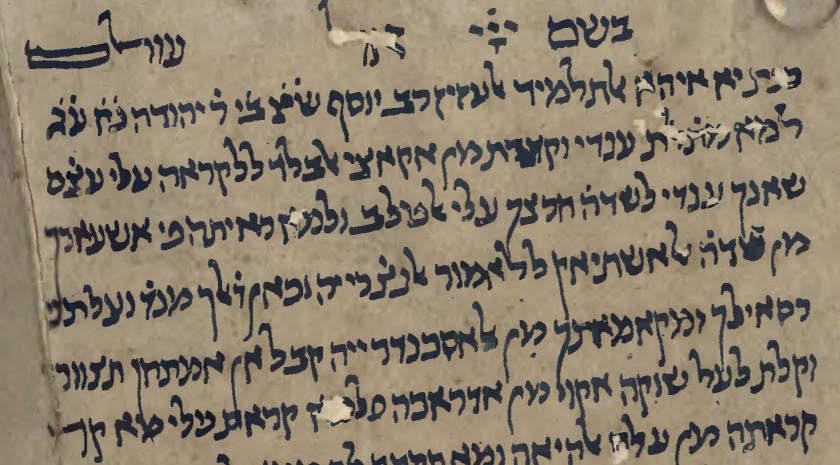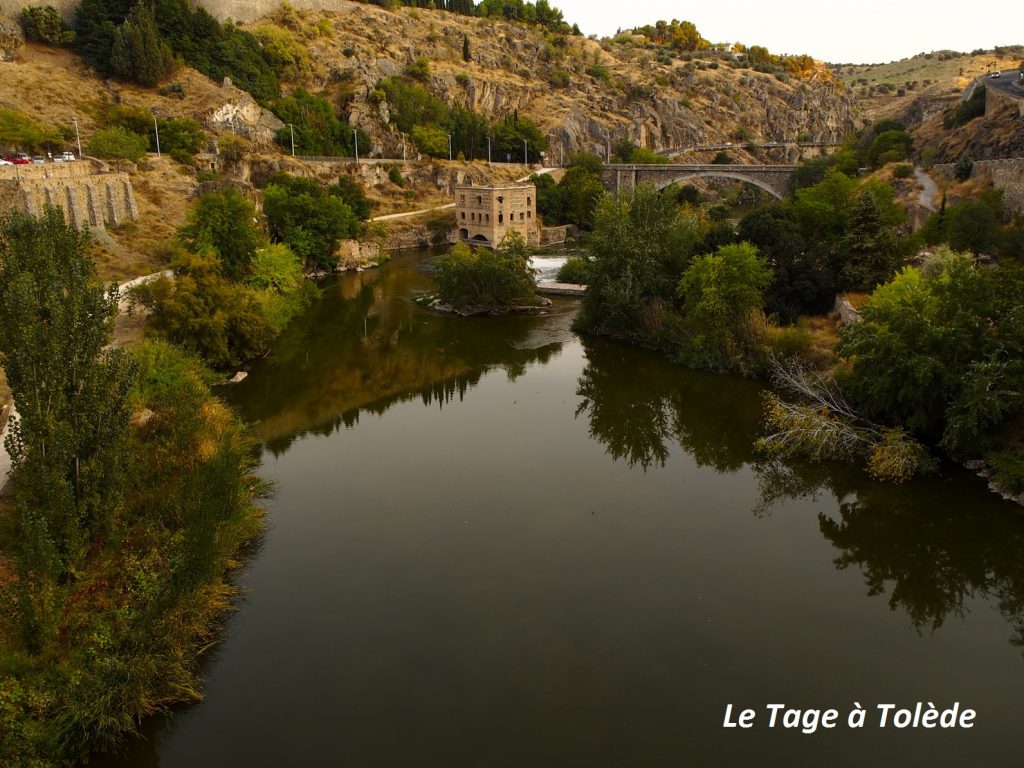
1110 AD to 1130 AD, Psalm 103: The Kuzari.
This site was first built in French (see www.147thgeneration.net). The English translation was mainly done using « google translation ». We have tried to correct the result of this translation to avoid interpretation errors. However, it is likely that there are unsatisfactory translations, do not hesitate to communicate them to us for correction.
(for that click on this paragraph)
Summary
This generation of the 1110s and 1120s.
According to our count, this generation is the 103rd generation associated with Psalm 103. It is in this Psalm 103 that we therefore find an illustration of the facts of this generation.
After the First Crusade, life resumes in Europe, but wounds are not healed. The Jewish communities are now living in her memory while waiting to accumulate new painful episodes. With the first crusade, Western Christianity marks a little more its difference with the Oriental Christianity, the holy war led by the Crusaders is far from attracting the adhesion of Constantinople.
At the same time, cities have a new prosperity, the population is growing and activities are increasing. Follows the birth of the Cathedrals, especially Paris, from 1163 marking the rise of Western Christianity and through it the affirmation of the Christian kingdoms of Northern Europe. Capetian France will soon find its place in the concert of nations. This rise will be to the detriment of the Jews. But in the generation that interests us, in France, the Jews have been almost spared by the Crusades.
The succession of Rashi is assured. Rashi’s comments will allow future generations to come to enrich the Talmud, which will thus become an even stronger work of cohesion for the Jewish, Ashkenazi or Sephardic community. Thus, if the communities of the Rhine were almost destroyed, those of France took the relay to ensure the transmission of the Jewish faith and to consolidate it by enriching the Talmud. While the Jews might have become discouraged after the first Crusade, they renewed their attachment to God although they suspected that the next generations will have their share of misfortunes.
In Spain, the Almoravid threat proves less painful than expected for the Jewish community, which is coexisting with the new masters of Muslim Spain, pending further changes. This era is marked in Spain by two great Jewish thinkers: Judah Halevi who returned to Toledo in 1108 and Ibn Ezra.
Judah Halevi’s major work is the Kujari, which he completed in 1040. He devoted twenty years of his life to writing it (which therefore began in this generation). The setting of the book is the conversion of the King of the Khazars to Judaism. A Muslim, a Christian and a Jew discuss among themselves the merits of their respective faiths before the king. There we hear the song of the nightingale, not in poetry, but in prose that has influenced Jewish thought to this day. Yes, the Temple has been destroyed and the people are in exile. Yes, nations are born and disappear. But the history of the Jews goes beyond the laws of causal relations. There are no people left of the ancient world except the Jews, and it is to God that they owe their survival. The spirit of the Jew works in silence. This spirit is like a seed. He must give the impression of rotting and dying in order to absorb the substance around him and incorporate it, thus transforming it into his being and thus bringing him to a higher degree of existence.
Talk
After the 1st Crusade
After the First Crusade, life resumes in Europe, but wounds are not healed. The Jewish communities are now living in her memory while waiting to accumulate new painful episodes.
With [1] the first crusade, Western Christianity marks a little more its difference with the Oriental Christianity, the holy war led by the Crusaders is far from attracting the adhesion of Constantinople.

At the same time, cities have a new prosperity, the population is growing and activities are increasing. Gothic art takes off with the construction of the abbey church of Saint Denis. Follows the birth of the Cathedrals in Chartres, Sens and especially Paris from 1163 marking the rise of Western Christianity and through it the affirmation of the Christian kingdoms of Northern Europe. Capetian France will soon find its place in the concert of nations. This rise will be to the detriment of the Jews. But in the generation that interests us, in France, the Jews have been almost spared by the Crusades.
Rashi’s legacy
The succession of Rashi is assured:

- Rashi [2] had the good fortune to gather around him many disciples, in the first rank of which come his two sons-in-law, Judah and Meir. […] Meir’s fame is not only based on his relationship with Rashi, he was also the father of leading scientists. Elder Samuel, nicknamed Rachbam, was a pupil of his grandfather and occasionally recalled their discussions and interviews. He seems to have been twenty years old in the year of Rashi’s death (1105). (In his work, in particular, he completed) Rashi’s comments on the Baba Batra and Pessahim (Talmud) treatises, which had remained unfinished.
- The most famous son of Meir is unquestionably the third: Jacob, born about 1100. He was soon, nicknamed Rabbenu Tam, in the image of the patriarch Jacob who was « tam » that is to say perfect ( following Genesis 25,27).
Rashi’s comments will allow future generations to come to enrich the Talmud, which will thus become an even stronger work of cohesion for the Jewish, Ashkenazi or Sephardic community.
Thus, if the communities of the Rhine were almost destroyed, those of France took the relay to ensure the transmission of the Jewish faith and to consolidate it by enriching the Talmud. While the Jews might have become discouraged after the first Crusade, they renewed their attachment to God although they suspected that the next generations will have their share of misfortunes.
In the absence of a major political event, it is this unwavering attachment that recalls the beginning of the psalm of this generation:

- Of David. My soul, bless the Lord, and all my innards, His holy name.
- My soul, bless the Lord and do not forget any of His benefits.
- Who forgives all your iniquity, Who heals all your illnesses.
- Who redeems your life from the pit, Who crowns you with kindness and mercy.
- Who sates your mouth with goodness, that your youth renews itself like the eagle.
- The Lord performs charitable deeds and judgment for all oppressed people.
Living in Almoravid Spain
In Spain, the Almoravid threat proves less painful than expected for the Jewish community, which is coexisting with the new masters of Muslim Spain, pending further changes.
For the attachment to God, the Jews of Spain are not left out. If they have been spared by the Crusaders, they have no illusions about the world around them. In this generation, if the Jews of Muslim Spain manage to cohabit with the Almoravid power, it becomes more and more contested by the entire population, including Muslims.
This era is marked in Spain by two great Jewish thinkers: Judah Halevi who returned to Toledo in 1108 and Ibn Ezra.
The Kujari
The major work of Judah Halevi is the Kujari he completes in 1040 just before undertaking his exile (or his return) to the Holy Land that he can not accomplish (he will probably die in 1041 in Egypt without being able to reach Jerusalem ). In the argumentation he develops, he favors the place of the Jews in relation to the other religions of the book (Islam and Christianity) because of the election of the Jewish people who remain eternal:

- Judah [3] Halevi wrote in Arabic, a philosophical work entitled « Book of Argument and Evidence to Conquer Despised Religion. » This book, translated into Hebrew in the middle of the twelfth century, is known today as Kujari, he devoted twenty years of his life to its writing. The frame of the book is the conversion of the king of the Khazars to Judaism. A Muslim, a Christian and a Jew discuss among themselves the merits of their respective times before the king. There we hear the song of the nightingale, not in poetry, but in a prose that has influenced Jewish thought until today.
- Yes, the Temple has been destroyed and the people are in exile. Yes, nations are born and disappear. But the history of the Jews goes beyond the laws of causal relations; it was true at the time of the Bible and it is true of the sad period of exile. Just as the Temple was the place where humanity could be forgiven for its sins by the sacrifices made by the Jewish people, so in the Diaspora Jews are at the heart of humanity and their sufferings serve to redeem the sins of the world. Apart from the Jews, there remain no people of the ancient world, and it is to God that they owe their survival. To suffer with humility and patience is the mission of the Jew in the diaspora. Other peoples are able to suffer with patience but, in truth, they strive in the depths of their hearts to reach the ideal of the warrior, they measure the value in terms of military victories and political successes. It is precisely the misery of the Jew that testifies to his mission. The spirit of the Jew works in silence. This spirit is like a seed. It must give the impression of rotting and dying to absorb the substance that surrounds it and to incorporate it, thus transforming it into its being and thus leading it to a higher degree of existence. The covenant is real; it was given at Sinai to a whole people who witnessed it. The nation, the country, and the Torah form a unity.
It is this new spirit within Judaism that the sequel of the psalm of this generation takes over, where East and West, among others, evoke the apparent powers that are Islam and Christianity:

- He makes His ways known to Moses, to the children of Israel His deeds.
- The Lord is merciful and gracious, slow to anger and with much kindness.
- He will not quarrel to eternity, and He will not bear a grudge forever.
- He has not dealt with us according to our sins, nor has He repaid us according to our iniquities.
- For, as the height of the heavens over the earth, so great is His kindness toward those who fear Him.
- As the distance of east from west, He distanced our transgressions from us.
- As a father has mercy on sons, the Lord had mercy on those who fear Him.
- For He knows our creation; He remembers that we are dust.
Although the Jewish people seem to have fallen into exile, in fact they triumphed over all the people who dominated it:
- In the same [4] time that he was the interpreter of his time, Halevi also knew how, by his poetry, to give a finished form to the conceivable but unexpressed requirements of the Jewish soul, in order to extract from it the metaphysical and permanent core. He maintained that the Muslim temporal power, or the Christian could not be the proof of the superiority of these religions over Judaism. In spite of so many vicissitudes, Israel was alive: the Romans, the Greeks, the Babylonians had disappeared. Even if they were scattered to the four corners of the earth, the Jews found in monotheism and in the Talmud their unity. God had scattered them to promote their mission in the world, using Christianity and Islam to defeat paganism definitively. On the day of the arrival of the Messiah, all would recognize from the first hour in the trunk (Israel) that had produced such robust branches (Christianity and Islam).
It is according to this analysis that the psalm of this generation concludes:

- As for man-his days are like grass; like a flower of the field, so does he sprout.
- For a wind passes over him and he is no longer here; and his place no longer recognizes him.
- But the Lord’s kindness is from everlasting to everlasting, and His charity to sons of sons.
- To those who keep His covenant and to those who remember His commandments to perform them.
- The Lord established His throne in the heavens, and His kingdom rules over all.
- Bless the Lord, His angels, those mighty in strength, who perform His word, to hearken to the voice of His word.
- Bless the Lord, all His hosts, His ministers, those who do His will.
- Bless the Lord, all His works, in all the places of His dominion; my soul, bless the Lord.

[1] (Preface by) Georges Duby: « A history of the medieval world ». Chapter: « The Russo-Byzantine World (980-1250) ». (French: « Une histoire du monde médiéval ». Chapitre : « Le monde russo-byzantin (980-1250) ». (p. 241) ).
[2] Simon Schwarzfuchs: « Rashi de Troyes ». (French: « Rachi de Troyes ». (p. 32-34) )
[3] CHAIM POTOK: « A story of the Jewish people ». Book III: Islam, the Nightingales in the Sandstorm » (French: « Une histoire du peuple Juif ». Livre III : L’Islam, les rossignols dans la tempête de sable » (p. 429-430) )
[4] Riccardo Calimani: « The Jewish Wandering ». Chapter: « Discrimination, Persecution, Survival » (French: « L’Errance juive ». Chapitre : « La discrimination, la persécution, la survie » (p. 107) ).

